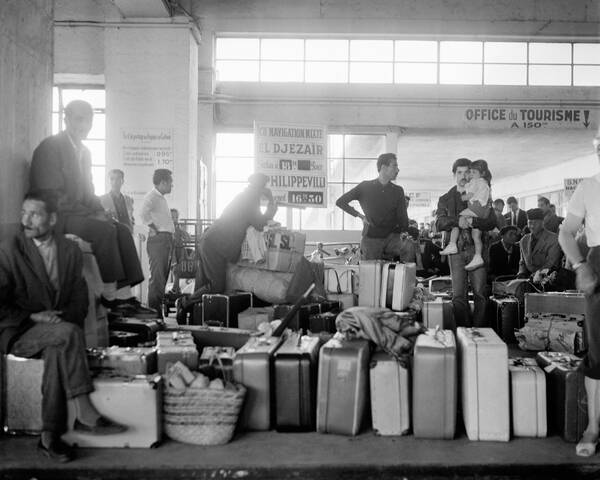You are now entering the Jewish Currents archive.
October 31: Joseph Papp
 Joseph Papp (Papirofsky), the founder of the Public Theater on Astor Place in New York, which launched many innovative and significant theater works from 1967 onwards, died on this date in 1991. Papp founded the New York Shakespeare Festival in 1954 and was granted the use of Central Park for free performances of Shakespeare’s plays three years later. Among the notable playwrights and plays he promoted at the Public were David Rabe, Ntozake Shange’s For Colored Girls who Have Considered Suicide when the Rainbow is Enuf, Charles Gordone’s No Place to Be Somebody (the first play by an African American to win a Pulitzer), Larry Kramer’s The Normal Heart, as well as the Broadway hits Hair and A Chorus Line. In 1977, Papp revived S. An-ski’s Yiddish play The Dybbuk: Between Two Worlds at the Public, in an innovative and captivating production directed by Joseph Chaikin. New York’s Theater District was protected from commercial hotel developers and retailers by being declared a National Historical Site in the early 1980s, primarily because of the activism of Joseph Papp.
Joseph Papp (Papirofsky), the founder of the Public Theater on Astor Place in New York, which launched many innovative and significant theater works from 1967 onwards, died on this date in 1991. Papp founded the New York Shakespeare Festival in 1954 and was granted the use of Central Park for free performances of Shakespeare’s plays three years later. Among the notable playwrights and plays he promoted at the Public were David Rabe, Ntozake Shange’s For Colored Girls who Have Considered Suicide when the Rainbow is Enuf, Charles Gordone’s No Place to Be Somebody (the first play by an African American to win a Pulitzer), Larry Kramer’s The Normal Heart, as well as the Broadway hits Hair and A Chorus Line. In 1977, Papp revived S. An-ski’s Yiddish play The Dybbuk: Between Two Worlds at the Public, in an innovative and captivating production directed by Joseph Chaikin. New York’s Theater District was protected from commercial hotel developers and retailers by being declared a National Historical Site in the early 1980s, primarily because of the activism of Joseph Papp.
“If there is a single driving force which characterizes the New York Shakespeare festival, it is its continual confrontation with the wall that separates vast numbers of people from the arts. This wall – spawned by poverty, ignorance, historical conditions – is our principal opponent, and as we joust and engage with this ‘enemy,’ we distill and shape the nature and style of our theater. . . . It is the social consciousness of this theater that distinguishes it from other theaters.” —Joseph Papp
